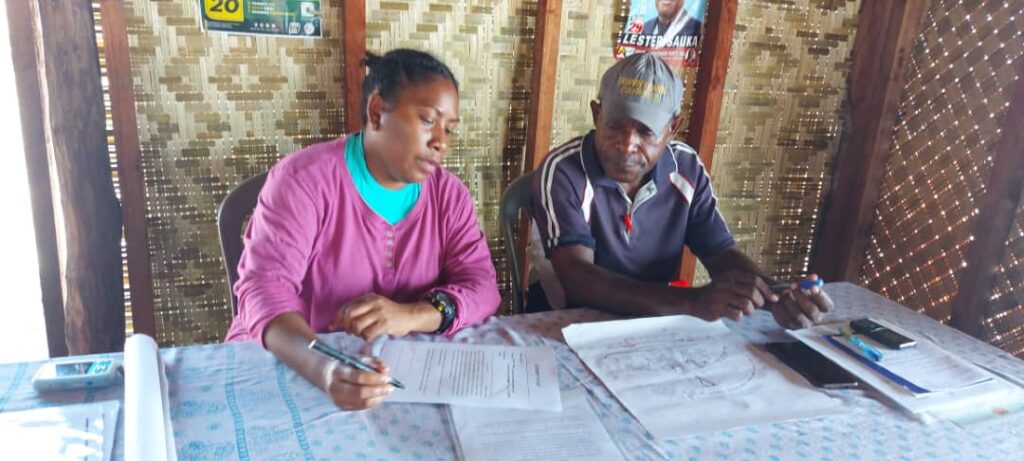By the Pasifika Team’s Senior Solicitor Watna Mori and Head of Litigation and Climate Lead Fleur Ramsay
In a historic moment, as the 27th Session of the Conference of Parties to the UN Framework Convention on Climate Change (UNFCCC COP 27) drew to a close in Egypt, the member states agreed to the establishment of a loss and damage fund for assisting developing countries that are particularly vulnerable to the adverse effects of climate change.
The COP climate summits are held every year for governments to agree on steps to take to limit global temperature rises. This year, for the first time, the issue of loss and damage was officially on the COP agenda and, after 30 years of campaigning on the issue by the most climate vulnerable countries such as Pasifika countries, member states have agreed to set up a loss and damage fund by November 2023.
Loss and damage generally refers to irreparable harm caused by climate change. This is the kind of harm currently being suffered in the Pacific Islands from climate change, which is no longer preventable. The establishment of a loss and damage fund would provide a way for countries who have contributed the most to climate change, to financially assist the Pacific Island nations, as well as other climate vulnerable nations, who have contributed the least but are suffering the most from climate change’s destructive impacts.
In the leadup to COP27, a submission was made by the Veraibari Village and Veraibari Village Development Project Committee in the Kikori Delta region of Papua New Guinea, to the Special Rapporteur on human rights and climate change and is now available to view on the Special Rapporteur’s site. EDO’s Pasifika Program and the Papua New Guinea based Centre for Environmental Law and Community Rights and Piku Biodiversity Network Inc. supported the making of the submission.
The submission responded to the Special Rapporteur’s call for submissions on the “promotion and protection of human rights in the context of mitigation, adaptation and financial actions to address climate change, with particular emphasis on loss and damage.” The submission tells of the impacts of climate change being faced by Veraibari Village which include: displacement, loss of land, loss of culture, loss of biodiversity and food and water insecurity.

Veraibari village is located at the mouth of the Kikori River in the Gulf Province of Papua New Guinea, an area on the tentative list for World Heritage because of its immense biodiversity and cultural diversity values. The delta islands, one of which Veraibari village is located on,is part of a very dynamic environment shaped by wind and wave action, which changes the physical environment. This dynamic process is reflected and understood in the migratory history of the Kikori people and local legends and customs. The onset of climate change has altered the natural pace, time and strength and movement of the wind and wave action, which has left the villagers unable to adapt at the pace at which the climate is changing their environment nor are they able to use ancestral knowledge and connection with their environment to predict the changes that continue to occur at a rapid pace.
Veraibari village is now one of the few inhabited villages in the Kikori Delta left as climate change impacts have forced people from neighbouring villages to flee. The Veraibari village formed the Veraibari Development Projects Committee to plan and lead their own impending relocation. However, the relocation is having devastating impacts on the biodiversity in the region as the villagers struggle with having to exploit resources to fund their relocation and to rebuild houses, which is putting at risk the snub nose dolphin, regarded as their ancestor.
Yolarnie Amepou from the Piku Biodiversity Network who lives in Kikori and supports the Veraibari Village has been assisting the Veraibari Development Projects Committee with seeking the financial and technical assistance required for their village relocation project. She said of the submission to the Special Rapporteur, “This village has taken a courageous step by speaking out about the issues they are facing with climate impacts, we are all hoping the other displaced villages of the Gulf of Papua have, with this submission, a voice that reaches out to seek redress and villages are not left to fight these impacts alone.”
We hope the voices of the people of Veraibari and other resilient communities like theirs, fighting the impacts of climate change alone, are heard by the UN member states and that the agreed loss and damage fund is implemented and effective in addressing these communities and states’ needs as a matter of urgency. In particular, the fund must be available to communities, as well as states, to ensure the funds go equitably to communities in need and to support their community driven relocation plans as an exercise of self-determination.





